Parth, a seasoned tech writer, wields the keyboard (or pen) with finesse to unravel the intricacies of both Windows and Mac operating systems. He has covered evergreen content on mobile devices and computers for multiple publications over the last six years. You can find his work on AndroidPolice, GuidingTech and TechWiser. Whether it’s demystifying system updates, deciphering error codes, or exploring hidden features, Parth’s prose guides readers through the binary maze. When not immersed in tech jargon, you’ll find him sipping chai, pondering the next software review, and occasionally indulging in a friendly debate about mechanical keyboards.
I have spent years exploring how to build a digital life that’s truly my own, one where my data isn’t a product to be sold. My solution has been a self-hosted setup powered by Docker. By containerizing essential services, I have built a personal, private ecosystem that operates entirely on my own terms.
These aren’t just any containers; they are the fundamental, non-negotiable tools that form the bedrock of my privacy-focused life, allowing me to move beyond traditional tools from big tech.
n8n
A self-hosted automation tool
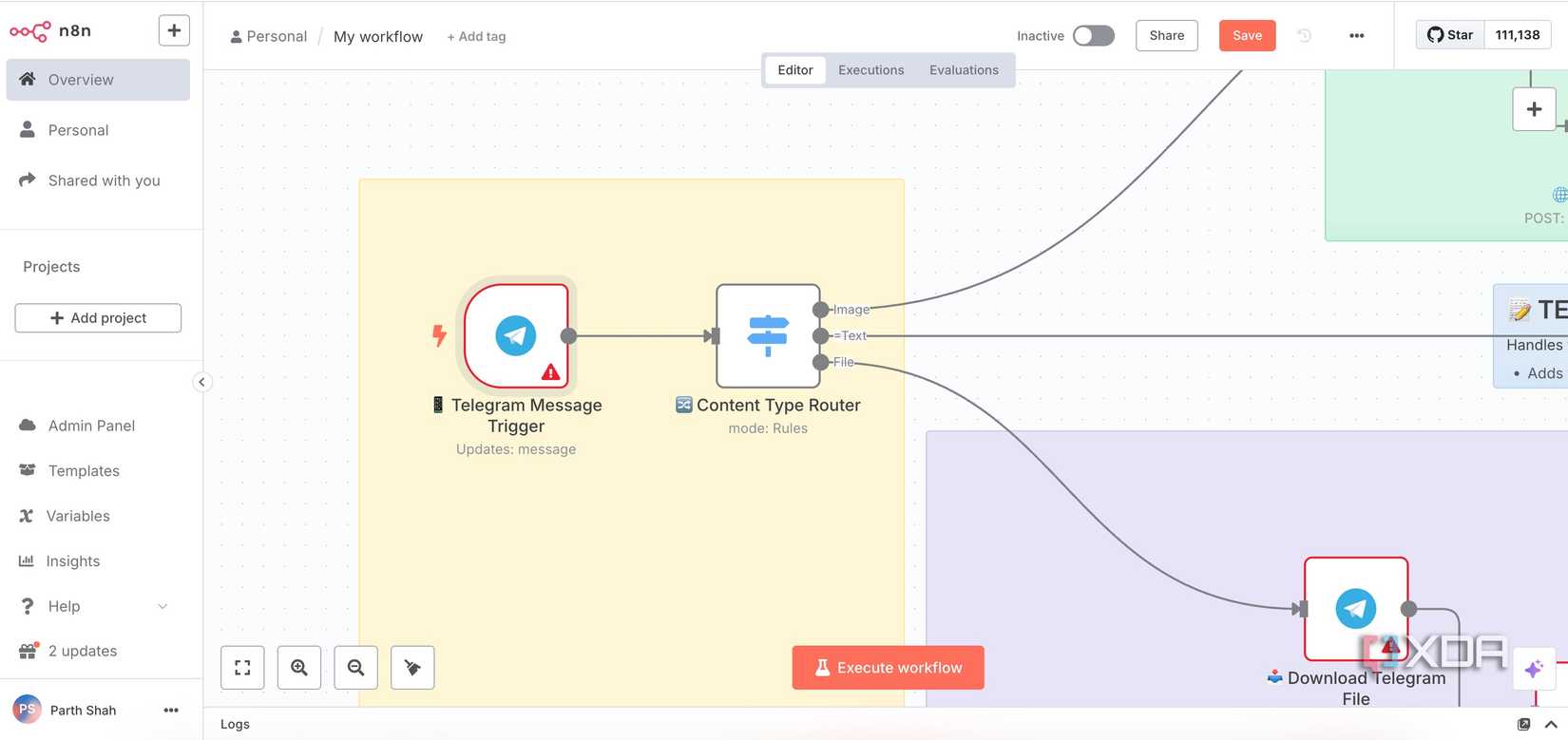
n8n Docker container is a non-negotiable part of my stack. It’s an open-source workflow automation tool that serves as the central system for my private digital ecosystem.
Instead of relying on services like Zapier or IFTTT, which require me to send my data and credentials to their servers, n8n allows me to build complex, multi-step automations that run entirely on my own hardware.
Whether it’s backing up a file from my Nextcloud server to a separate storage solution or routing a notification from a self-hosted app to a private messaging service, n8n ensures that my data stays where it belongs. For example, when I upload a new photo to my self-hosted Nextcloud, n8n can automatically trigger a workflow to back it up to an encrypted drive.
Tandoor
My ideal recipe manager
When I first started my self-hosting journey, I was looking for a reliable recipe manager to transfer all my recipes from ad-filled websites. I initially landed on Mealie, and for a while, it was a solid choice. It was easy to set up with Docker; the interface was clean, and it did the job just fine.
But as my privacy-focused digital life evolved, I wanted more control and features, and that’s when I discovered Tandoor. It felt like a true upgrade.
Tandoor’s interface is intuitive and feels like it was designed with a home cook’s workflow in mind. I can import recipes from multiple sources, including the existing services like Mealie and Nextcloud Cookbook.
The list of features includes excellent recipe management, a weekly planner, shopping lists, and robust community-made mobile apps.
Kavita
A private place to store books and comics
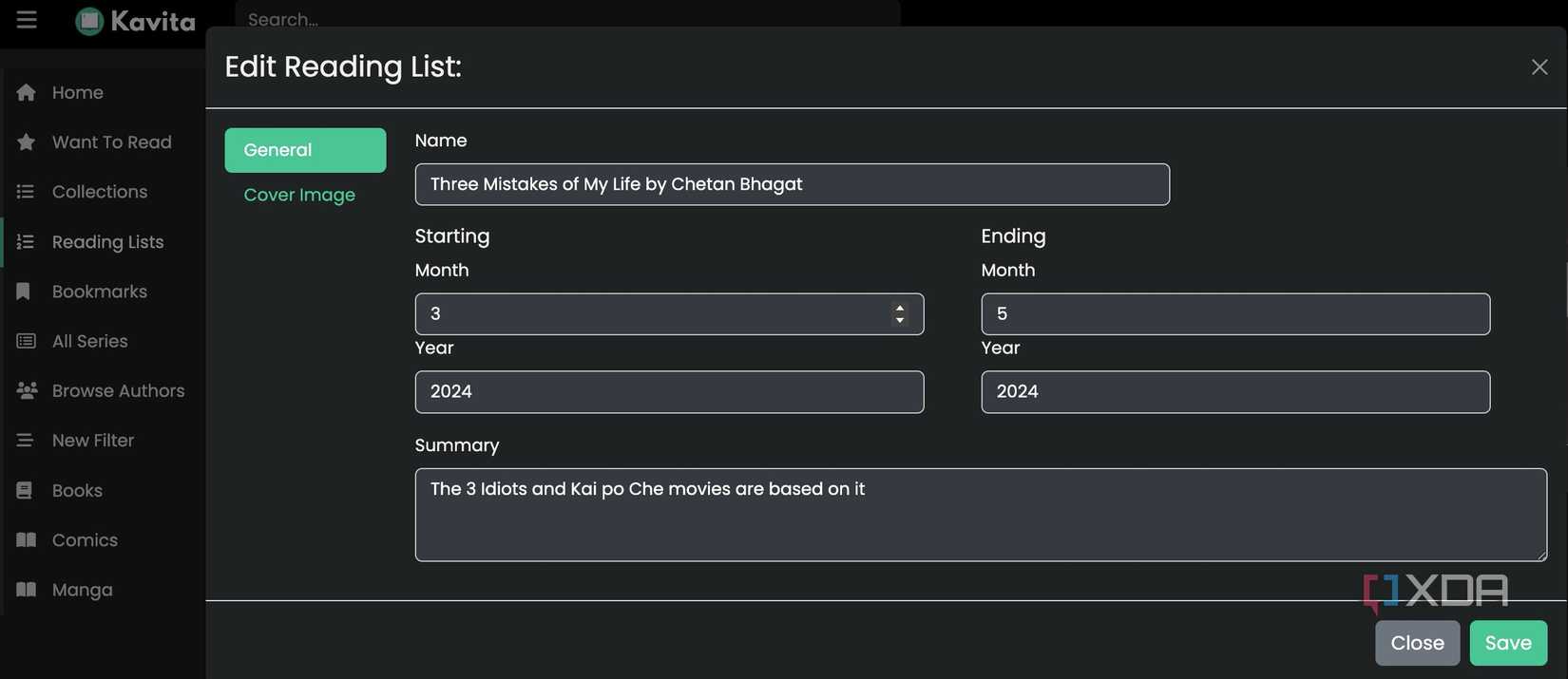
This Docker container has become a crucial part of my toolkit because it’s the perfect self-hosted alternative to something like Amazon’s Kindle ecosystem.
Kavita is a digital library server that lets me organize and read all my digital media — be it a classic novel, a comic book, or a Japanese manga. I have a vast collection of files, and Kavita’s ability to handle a wide array of formats like epub, pdf, cbr, and cbz without a single hiccup is quite handy.
The list of features includes the built-in comic reader, book reader with multiple themes, user management and sharing, immersive mode, and more.
Linkwarden
Managing bookmarks like a pro
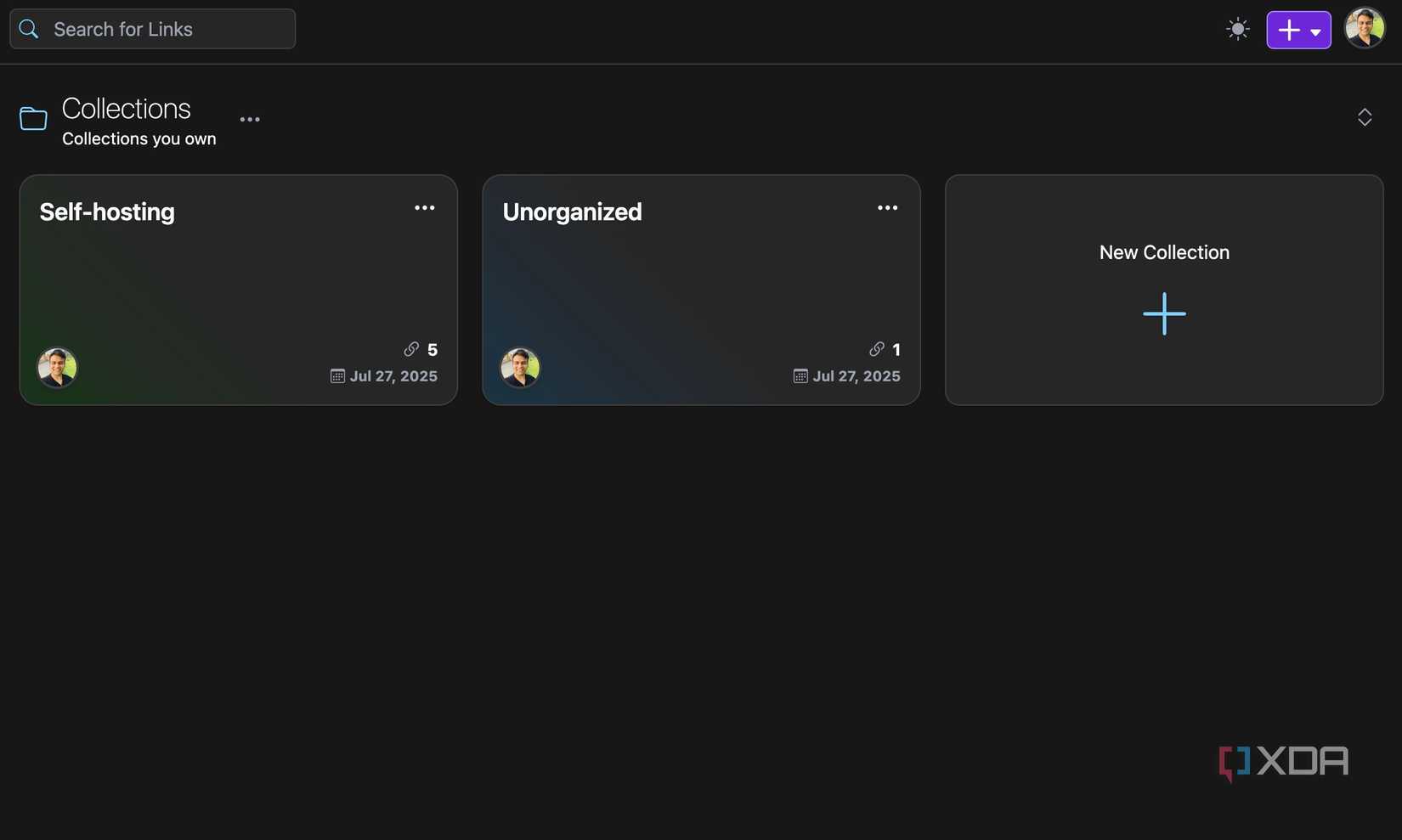
I used to be a power Pocket user. However, now that service is no longer available, I went on a hunt for a self-hosted read-it-later service and came across Linkwarden. It’s not just a bookmark manager; it’s my personal, permanent archive of the web.
The moment I save a link, Linkwarden automatically captures a permanent, offline copy of that website, often in multiple formats. This ensures that even if the original website disappears, the information I cared about is safe and accessible on my own server, forever.
Linkwarden has a neat UI, offers robust organizational features, and helps me build a personal, searchable knowledge base in no time. Check out my dedicated post to learn more about it.
AppFlowy
An ideal PKM tool
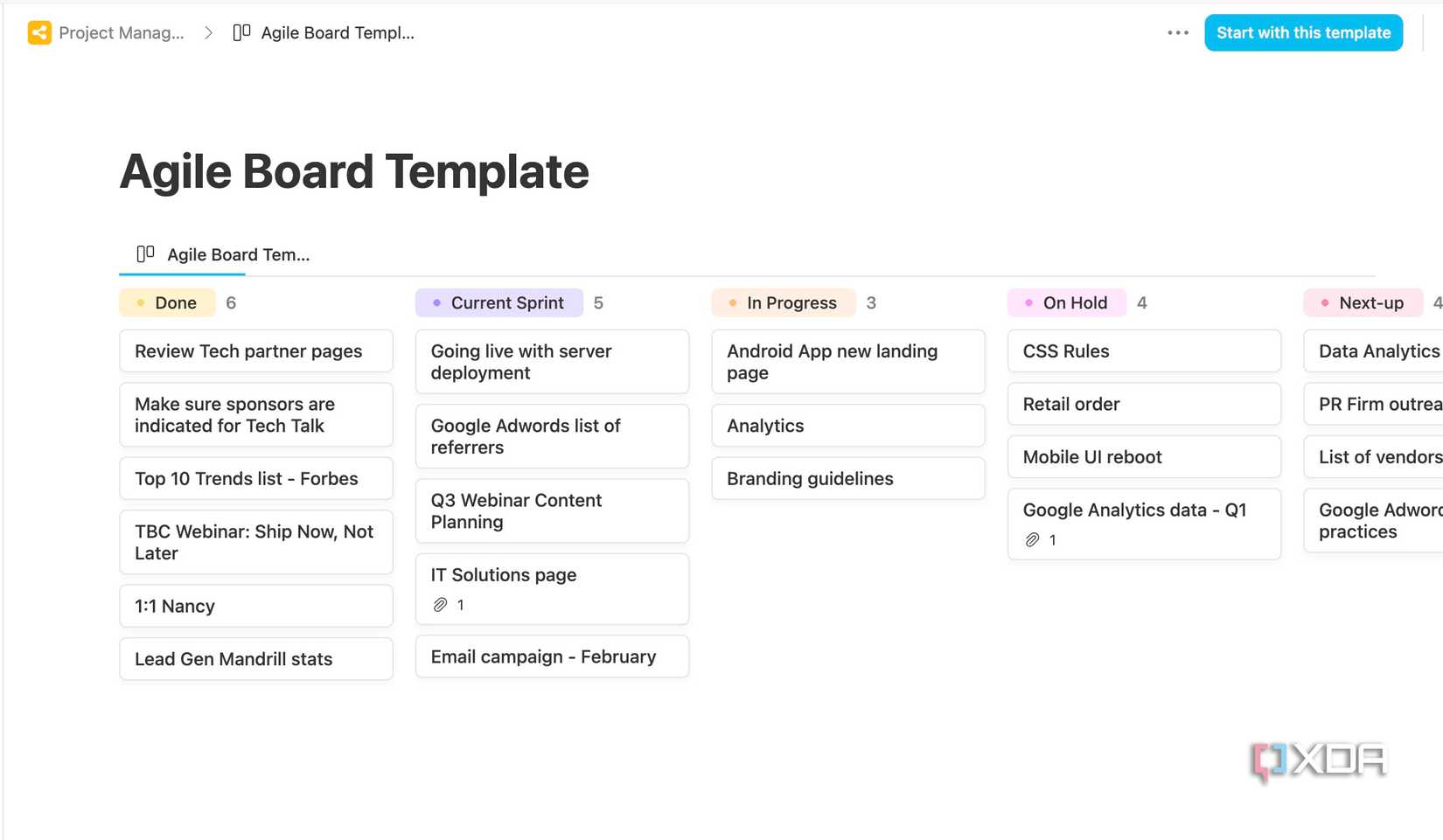
When I decided to break from big tech, one of the biggest challenges was finding a powerful, flexible replacement for my notes, databases, and wikis. Like many, I was a heavy Notion user, but the thought of personal knowledge being stored on a third-party server was a major concern.
I needed a tool that was just as capable, but one that I could truly own. That’s when I found AppFlowy, and it has since become a non-negotiable Docker container in my privacy-focused life.
AppFlowy has all the features I loved, but with one crucial difference: my data stays on my own server. I can create workspaces, add pages, utilize the slash command with the block editor, and develop robust databases with various views, including grid, table, and board.
Tududi
A robust to-do app
While AppFlowy handles my personal knowledge, I needed something that could tackle my ever-growing to-do list. That’s why I was thrilled to discover Tududi.
It’s an open-source, self-hosted task and project management tool. I can create recurring tasks, which is ideal for daily habits or weekly chores. The ability to add rich-text notes to my projects and tasks means all my relevant information — from a project brief to meeting notes — is right there where it belongs.
I can even organize my tasks by projects and tags. The UI is also neat and intuitive to use. Aside from Tududi, Super Productivity is another worthy Docker container to try.
My privacy stack
By building a self-hosted ecosystem with Docker, I’m not just avoiding big tech — I’m building my own secure, private corner of the internet. Of course, aside from these containers, I’m also toying with Immich (Google Photos replacement), Docmost (Notion rival), Vaultwarden (1Password alternative), and a bunch of other containers.
Of course, this shift requires effort, but the peace of mind that comes with knowing your data is truly your own is immeasurable. What are you waiting for? Start small, add containers as you go, and never be afraid to test out more tools in your journey.
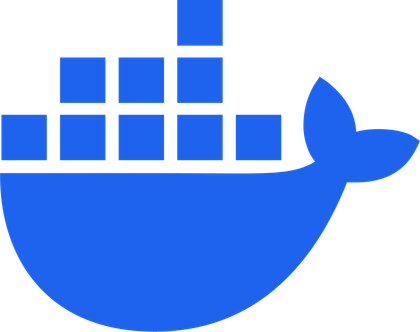 Credit: Source: Docker
Credit: Source: Docker.png)












 English (US) ·
English (US) ·